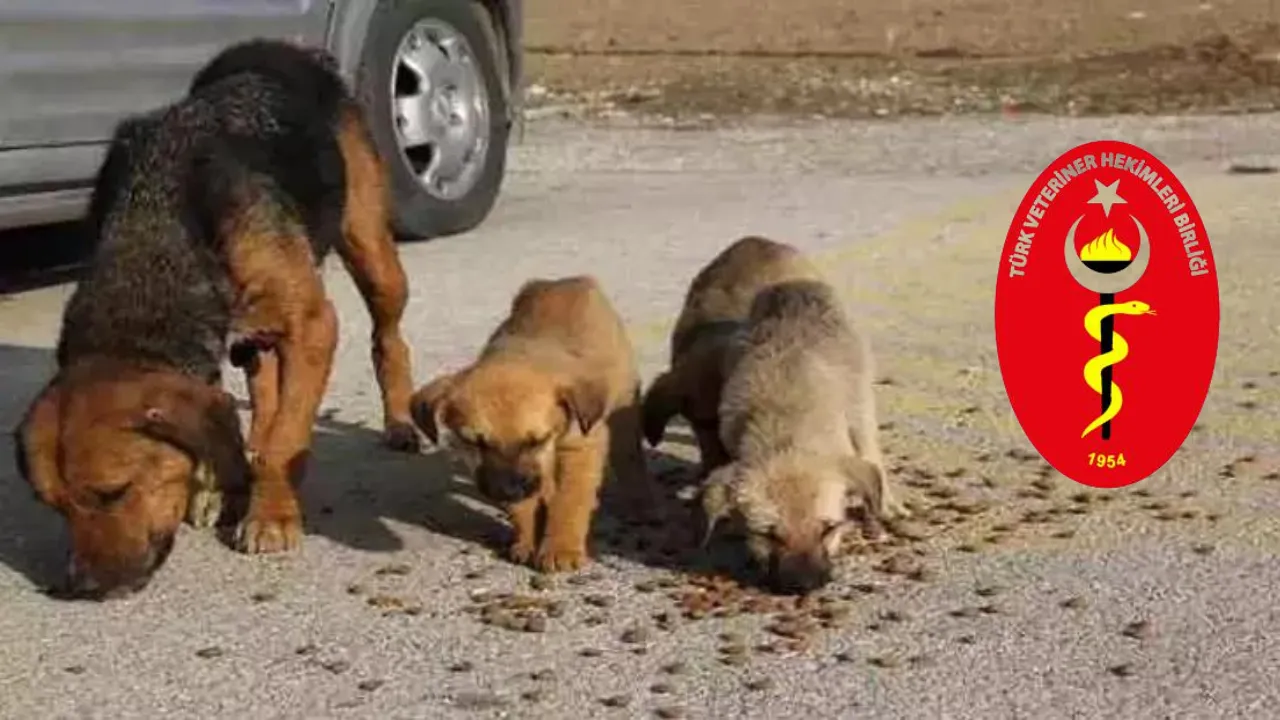The Union of Turkish Veterinary Doctors (TVHB) made a written statement saying that it will not comply with the law to be submitted to the Turkish Grand National Assembly that envisages the killing of stray and stray animals by putting them to sleep. TVHB pointed to its “professional oath” and said “we will keep them alive”. In addition, the following comment was made about the putting to sleep process: “Euthanasia is nothing but slaughter when applied to a healthy animal”.
The Union of Turkish Veterinary Doctors (TVHB) announced that it will not comply with the law planned to be submitted to the Grand National Assembly of Turkey, which envisages that animals living on the streets will be put to sleep if they are not adopted within one month.
In a written statement made by TVHB, it was emphasized that euthanasia of healthy animals is against professional ethics and can only be performed for medical reasons.
“Euthanasia is a massacre when applied to a healthy animal”
The following statements were made in the statement:
“The veterinarians of our country graduate from veterinary faculties with an oath as people who are sensitive to people, animals and nature, work for social welfare and have professional ethics. The euthanasia procedure envisaged in the draft law means the quick, painless and painless termination of animals’ lives through medical methods. Euthanasia is only applied on medical grounds in cases where pain and suffering are permanent or cannot be alleviated. Veterinarians strive to delay treatment and euthanasia as much as possible and to ensure animal welfare in accordance with their education and professional oath. Euthanasia can only be performed by veterinarians and when applied to a healthy animal, it is nothing but slaughter.”
Going Backwards and the World Health Organization’s Views
The statement reminded that the culling practice was abandoned in 2004 and stated that the proposed regulation is a step backwards. It was also emphasized that the World Health Organization opposes the culling of stray animals in the fight against rabies and animal-to-human diseases.
The Basis of the Problem and Solution Suggestions
In the statement of TVHB, it was stated that the current problem is caused by the increase in the population due to the lack of implementation of the protection measures ordered by the existing laws, and the solution suggestions were listed as follows:
Department of Veterinary Public Health should be established in Metropolitan Municipalities and Directorate of Veterinary Affairs should be established in other municipalities.
Qualified and sufficient number of personnel should be employed in the Department of Veterinary Public Health and Veterinary Affairs Directorates.
Temporary Care Homes should have sufficient number of veterinarians, animal health auxiliary staff and laborers. Standards should be established. Staff working in temporary animal care homes should be trained on hygiene, animal behavior, animal welfare and care.
Support should be obtained from veterinary faculties and freelance veterinarians for sterilization in regions where needed.
Uncontrolled breeding and unsupervised commercial sales, including owned animals, should be prevented, and production should be carried out under the supervision and approval of veterinarians.
The adoption of stray cats and dogs should be encouraged, difficulties related to identification should be eliminated, and animals of all ages should be able to be identified.
Old, weak and disabled animals that cannot adapt to the environment should be kept in nursing homes until they are adopted or for the rest of their lives.
Conditions for animal adoption should be reorganized.
Serious sanctions should be imposed on animals abandoned on the streets.
Animals in rural settlements and agricultural enterprises should be under control.
Adoption should be encouraged and the state should provide support in this regard. Companies and public institutions should be encouraged to adopt animals.
Professional organizations, non-governmental organizations and volunteers should be consulted, and individuals and institutions that abuse their support should be supervised.
TVHB believes that if these recommendations are taken into consideration and implemented, the problem of stray animals can be solved in a more humane and effective way.
















